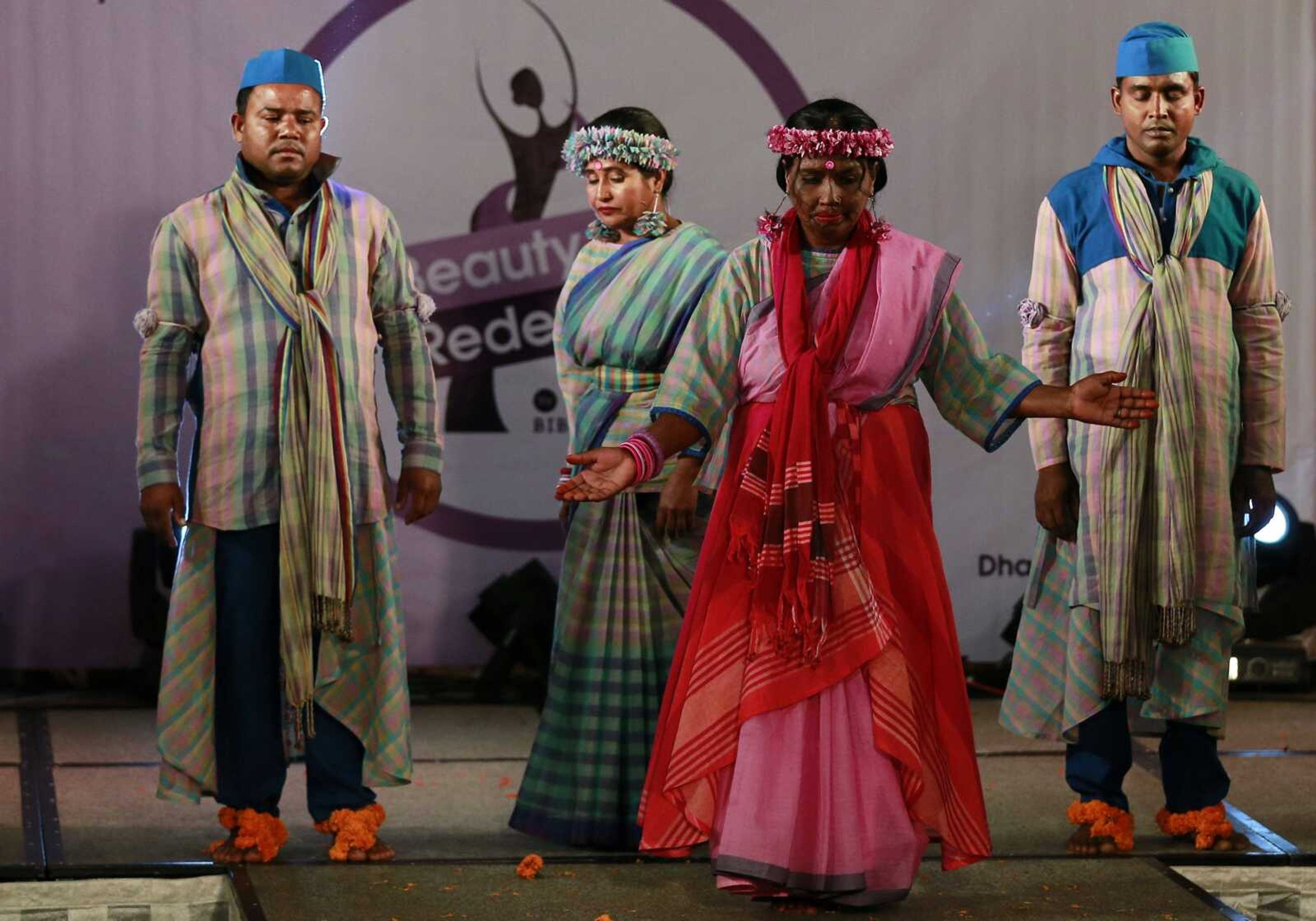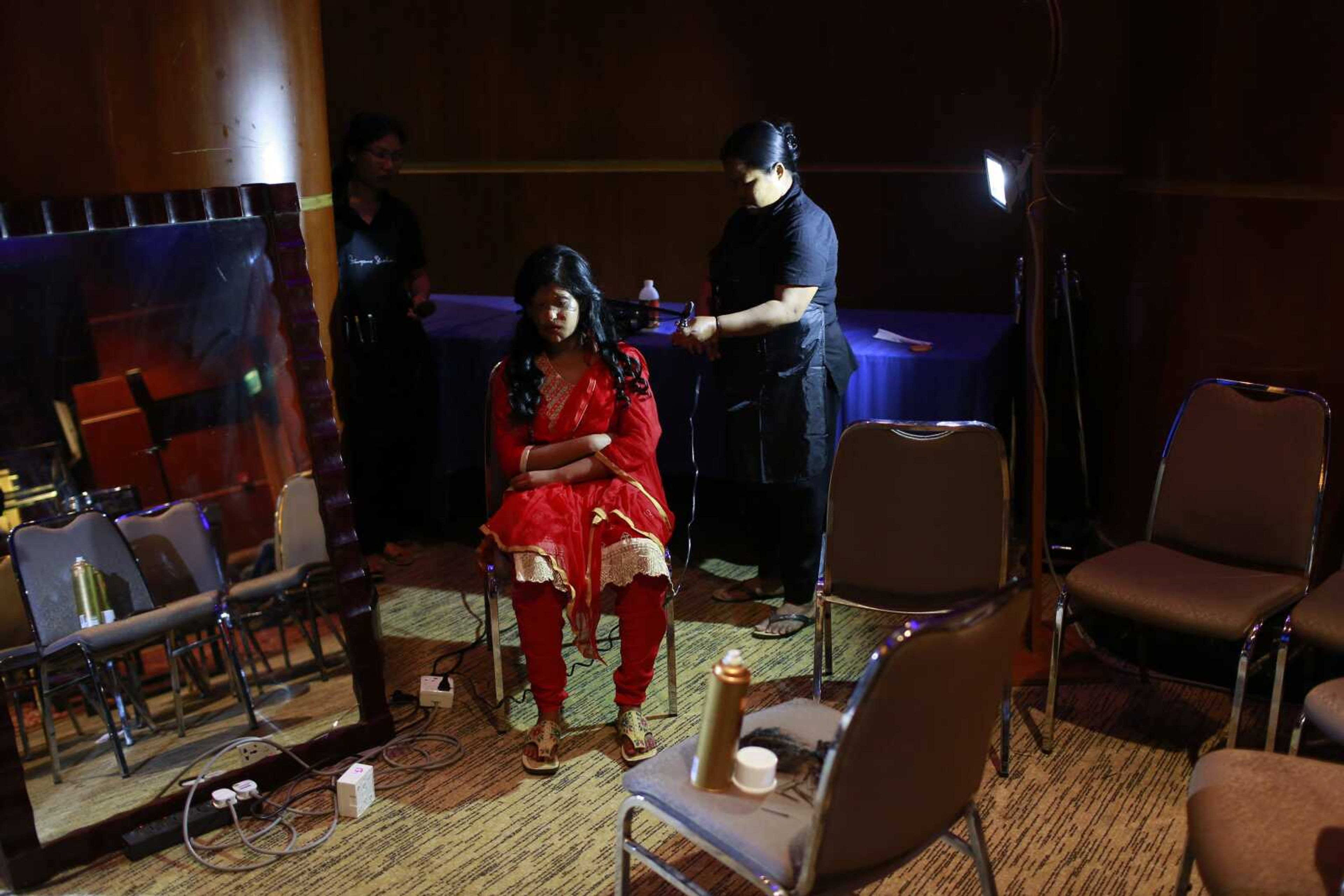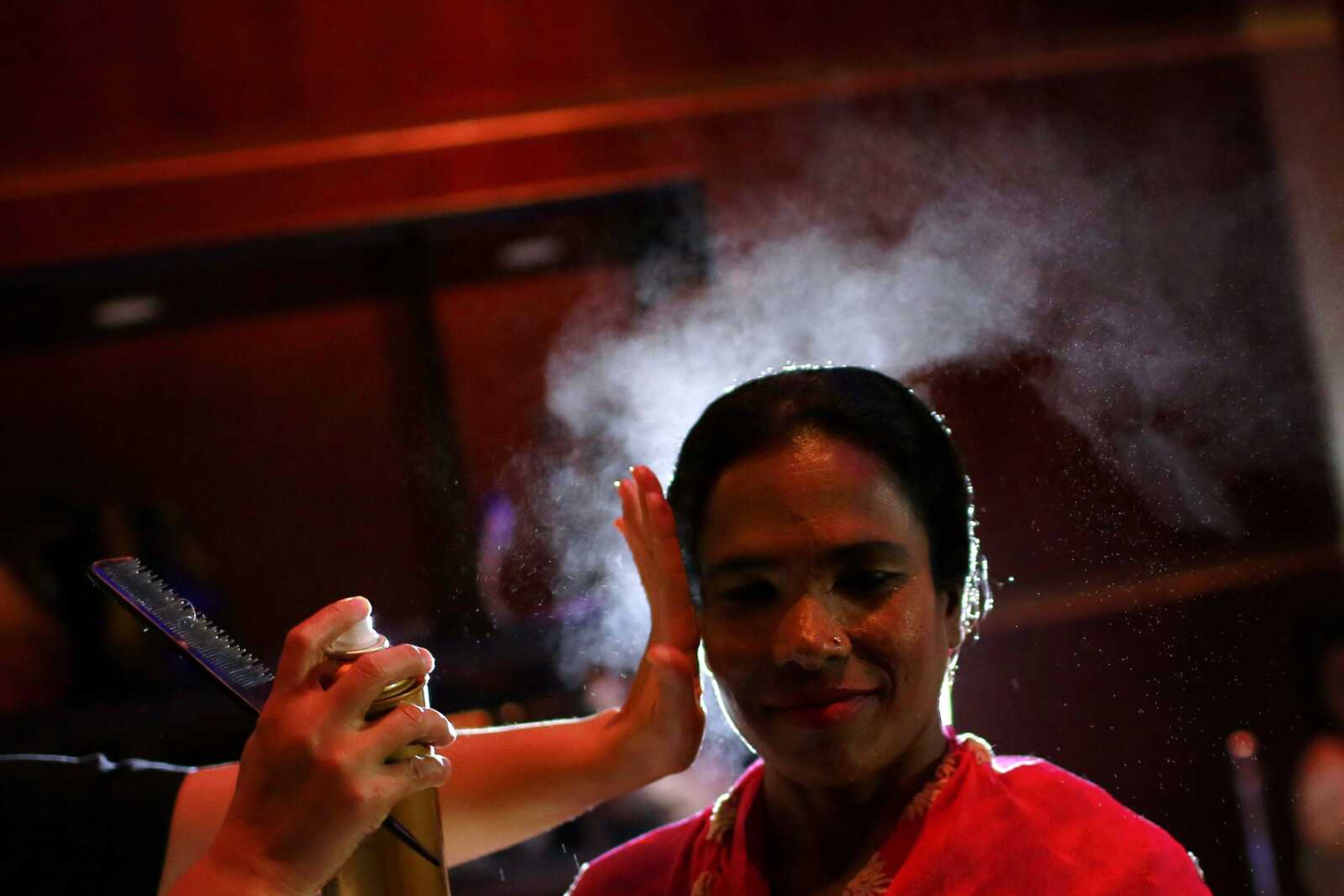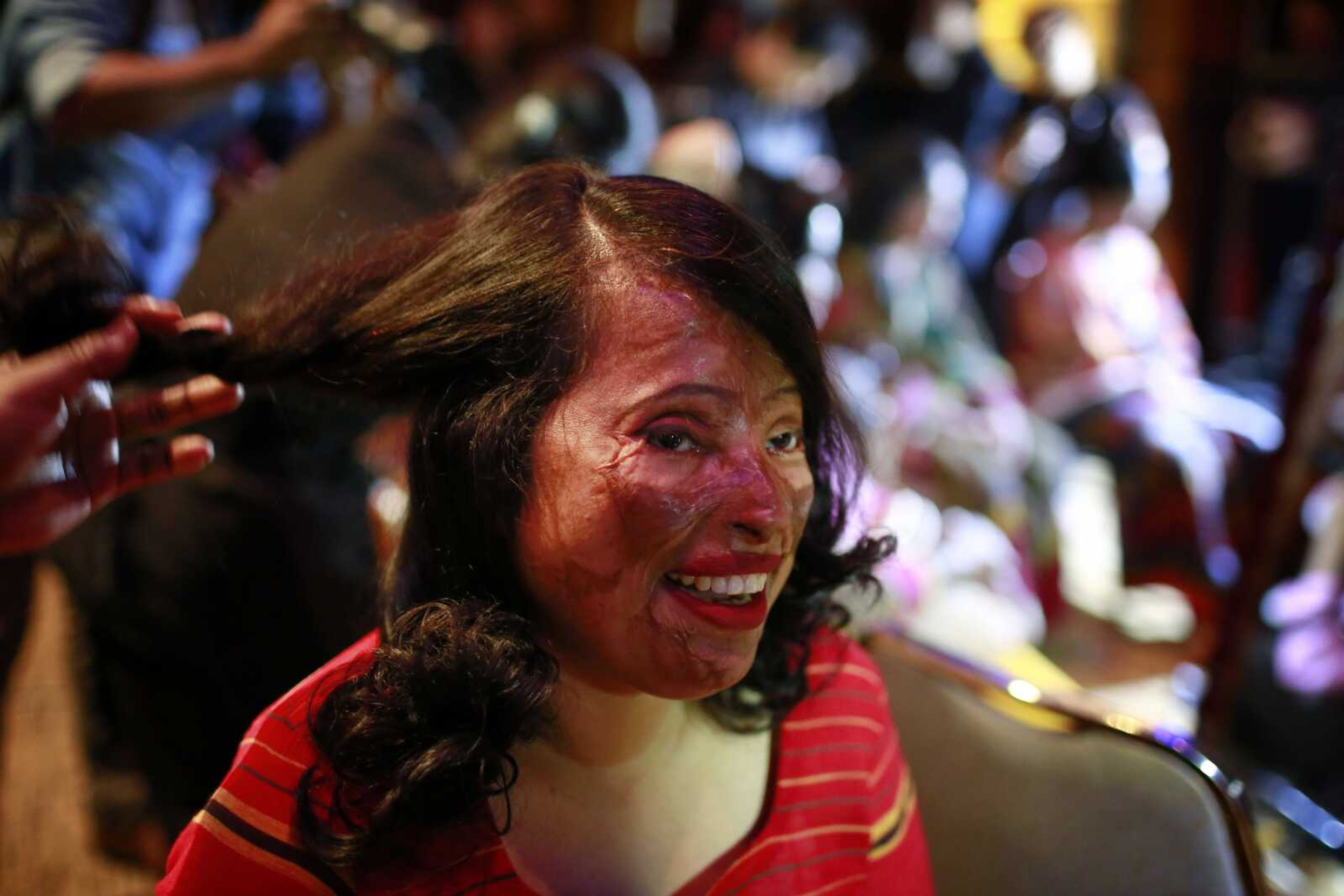Acid-attack victims in Bangladesh strut the catwalk at fashion show
DHAKA, Bangladesh -- Teen model Shonali Khatun strutted the catwalk as the audience cheered and clapped for a fashion show held in the capital of Bangladesh. But Khatun is no ordinary model, and this was no ordinary show. She and the 14 other models are survivors of acid attacks, common in this South Asian country where spurned lovers or disgruntled family members will resort to hurling skin-burning acid at their victims...
DHAKA, Bangladesh -- Teen model Shonali Khatun strutted the catwalk as the audience cheered and clapped for a fashion show held in the capital of Bangladesh.
But Khatun is no ordinary model, and this was no ordinary show.
She and the 14 other models are survivors of acid attacks, common in this South Asian country where spurned lovers or disgruntled family members will resort to hurling skin-burning acid at their victims.
The unusual fashion show held the evening of March 7 in Dhaka, and attended by fashion lovers as well as diplomats including the U.S. envoy, aimed to redefine the notion of beauty while calling attention to the menace of such attacks.
For 14-year-old Khatun, the event was nothing short of empowering.

Khatun was attacked just days after she was born amid a property dispute involving her parents and was left with burn scars on her face and arms.
She spent nearly three years in a hospital and underwent eight operations.
Her attacker never has been caught.
"I am so happy to be here. One day I want to be a physician," she said.
The models, including three men, walked the catwalk, dancing and singing and showcasing woven handloom Bangladeshi designs by local designer Bibi Russel.

Organizers said they hoped to highlight the fact acid victims, too often overlooked, are a vital part of society.
They deliberately chose to hold the event on the eve of International Women's Day.
"We are here today to show their inner, their inner strength, as they have come a long way," said Farah Kabir, country director of the ActionAid Bangladesh that organized the show to spread awareness about the violence. "I often take inspiration from them. Their courage is huge."
Bangladesh has struggled to deal with acid attacks in recent decades, instituting harsh punishments for perpetrators including the death sentence.
The country also has trained doctors to treat such sensitive cases and attempted to control the sale of acid but has failed to eliminate the scourge entirely.

In 2016, some 44 people were attacked with acid in Bangladesh -- an annual number that has remained relatively stable.
"I am ashamed of having such things in the country," Kabir said. "Unfortunately in Bangladesh, we do have acid victims because of either gender discrimination or violence or because of greed. And we want to remind everyone the kind of injustice that has been meted out to them."
The fashion designer whose work was showcased in the event said she was happy to participate, hoping the show would redefine beauty and prompt people to see acid victims for their strength.
"I have seen the sparkle, the beauty. I wanted to show you that. Give them a chance, please," Russel said. "We should respect equal rights, human dignity -- that is all."
Kabir said all of society needed to get involved in fighting such violence against women.
"We need to act. We need to take measures. And we need to secure our girls, our women," she said. "We cannot accept such heinous crimes."
Connect with the Southeast Missourian Newsroom:
For corrections to this story or other insights for the editor, click here. To submit a letter to the editor, click here. To learn about the Southeast Missourian’s AI Policy, click here.










